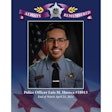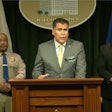The Child Online Protection Act, called COPA, was passed by Congress in 1998, but has never been enforced because of disagreements over its constitutionality. A federal appeals court, in March, called the Internet pornography law “constitutionally infirm.”
Under COPA, a law designed to protect children from Internet pornography by censoring online material, a first-time conviction could bring six months in jail and $50,000 in fines. Repeat offenders would get additional fines.
The American Civil Liberties Union has challenged COPA on the grounds that it hinders free speech.
The Bush Administration appealed to the Supreme Court, arguing that children are “unprotected from the harmful effects of the enormous amount of pornography on the World Wide Web.”
The ACLU argues that under COPA, many people who post explicit images and information on the Internet for legitimate reasons would be labeled criminals. Web sites that offer information on gynecology and safe sex, for example, could be covered under the law, says the ACLU.
Solicitor General Theodore Olson says the law targets commercial pornographers and that it is a reasonable law.
In a previous decision, the 3rd U.S. Circuit Court of Appeals ruled the law unconstitutional because it judged Internet content based on “contemporary community standards.”
The law’s opponents say this basis for judging online content can easily change with time, and even from household to household, making it impossible to be judged federally.
This will be the second time the Supreme Court will evaluate COPA’s constitutionality.














